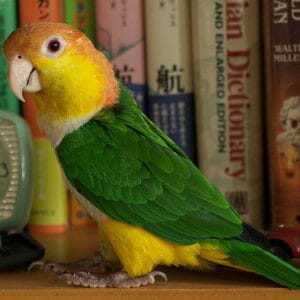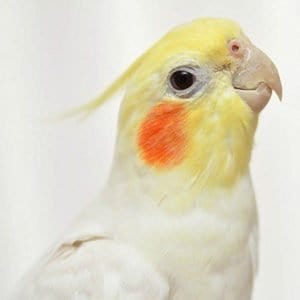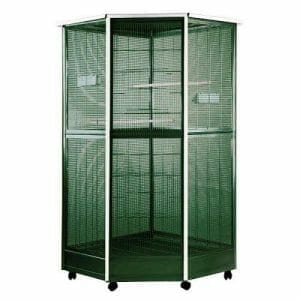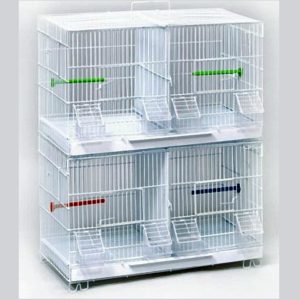Bird cages by bird size
Bird cages by style
Aviaries are generally defined as “a large cage, building, or enclosure for keeping birds in.”
Typically aviaries are used for housing multiple birds.
Personally we have a Prevue F050 aviary housing 10 budgies.
The flipside is we have a Prevue F040 aviary (slightly smaller than the Prevue Fo50) to house a single African ringneck parrot.
I’ll suggest an aviary if the pet bird keeper is seeking to allow his or her birds to fly without leaving the enclosure.
This is easy, with respect to bird size when we’re talking about budgies and finches.
Larger birds like African greys and Eclectus parrots will require more space like walking aviaries.
If you’re not certain about size criteria for your particular situation do not hesitate to reach out by clicking the link on the top left of this page (contact us 24/7)
Parrots are considered diurnal meaning they perform most of their activities during daylight hours.
The country pointed that is nocturnal, birds that use nighttime to their advantage like owls.
Because of 100 million years of instinctual expectations we advocate the use of 12 hours of artificial light and 12 hours of darkness for every bird cage in your home.
For the darkness. It’s best to cover the birdcage so they can sleep undisturbed and feel as though there is no threat.
A birdcage cover can be factory fitted per the cage or a tablecloth or sheet will suffice to give your birds some privacy in a good nights sleep.
Because you have to put the cage somewhere.
Today many cages come with stands or having stands built-in as part of their design.
Birdcage stands offer storage opportunities and casters.
We know that birds are messy so it’s important to have a mobile birdcage in order to keep the area around said birdcage clean.
Parrots are considered diurnal meaning they perform most of their activities during daylight hours.
The country pointed that is nocturnal, birds that use nighttime to their advantage like owls.
Because of 100 million years of instinctual expectations we advocate the use of 12 hours of artificial light and 12 hours of darkness for every bird cage in your home.
For the darkness. It’s best to cover the birdcage so they can sleep undisturbed and feel as though there is no threat.
A birdcage cover can be factory fitted per the cage or a tablecloth or sheet will suffice to give your birds some privacy in a good nights sleep.
Because you have to put the cage somewhere.
Today many cages come with stands or having stands built-in as part of their design.
Birdcage stands offer storage opportunities and casters.
We know that birds are messy so it’s important to have a mobile birdcage in order to keep the area around said birdcage clean.









